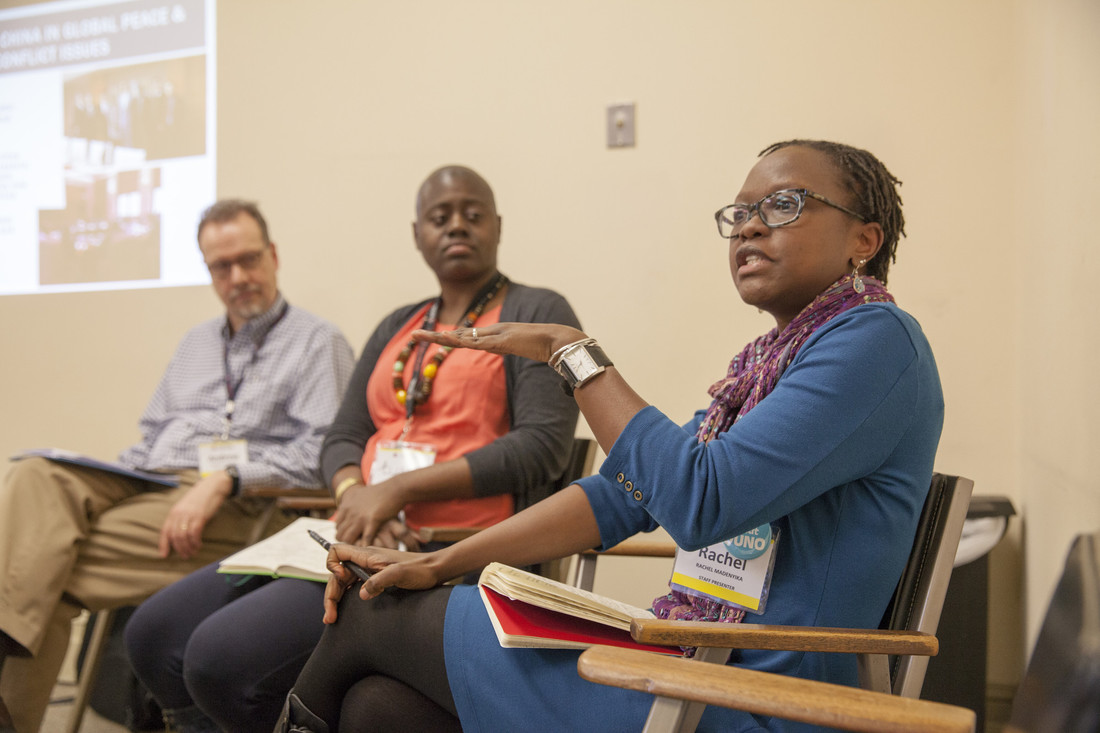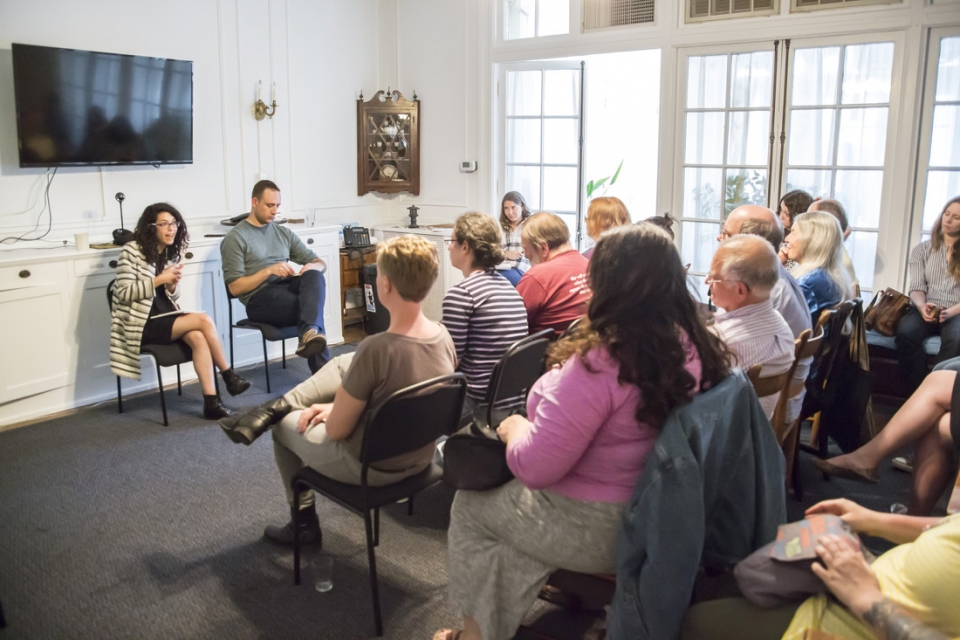
AFSC staff Andrew Tomlinson, Alissa Wilson, and Rachel Madenyika discuss the concept of shared security at a recent Corporation meeting in Philadelphia. James Wasserman / AFSC
In 2013, AFSC developed an alternative Quaker vision for U.S. foreign policy called ”shared security” with sister organization, Friends Committee on National Legislation. Since then, key peace-building partners around the globe have adopted and promoted this concept to address conflict in a world more interdependent than ever.
What is shared security? It’s an approach that looks at problems of violence and conflict as ones with shared political and diplomatic solutions. Shared security engages, rather than isolates, any parties affected; addresses root causes of conflict, rather than simply reacts to its consequences; and pursues shared, collaborative approaches at a global policy and practice level.
From AFSC’s experience over the past 100 years, we know what works and what doesn’t in building lasting peace with justice. Today, we’re more positioned than ever to share that knowledge with individuals, organizations, and governments hungry for innovation and cooperation in resolving conflict.
Communities around the world—many of which have endured decades of costly and often ineffective militarized interventions—are increasingly seeking peaceful solutions to conflict. Leaders from a variety of backgrounds—including military service, intelligence, and think tanks that have historically operated from a traditional security framework—are coming to understand the value of addressing global challenges through shared security.

The need for shared security has grown more evident as the nature of conflict and war has changed in recent years. Wars between countries are declining while conflict between non-state actors or groups of ideological actors is increasing. Non-state actors do not follow the "rules of law" or other international treaties designed to protect citizens. New and deadly technology like drones now allow for remote warfare and increased surveillance in the name of security.
Every day at AFSC, we see how military interventions and violent responses affect people in conflict areas around the world—lives are lost, communities are torn apart, and hostilities simmer, often leading to more violence in the months, years, and even generations ahead.
It’s not enough for peace-building organizations like ours to debunk the myth that military intervention is fast and effective in winning the complex conflicts we face today. To advance the vision of shared security, it’s essential that we present smart, practical solutions that demonstrate how equitable and just communities can be built through peaceful policy.

A new thought-provoking report by our Friends in the U.K., the Ammerdown Group, does just that. This group of peace-building practitioners and academics, concerned about the effects of geopolitics on the security of people worldwide, produced “Rethinking Security,” which explores the security strategies of Western states and proposes principles for a more effective approach in the common interest.
On May 25, the paper was launched in the House of Lords in London, and it has already helped stimulate public conversation in search of a new vision for peace and security.
I invite you to delve into the findings. Share your thoughts on social media using the hashtag #rethinksecurity.
We hope this inspires continued dialogue with policymakers towards a vision of a just and peaceful world.